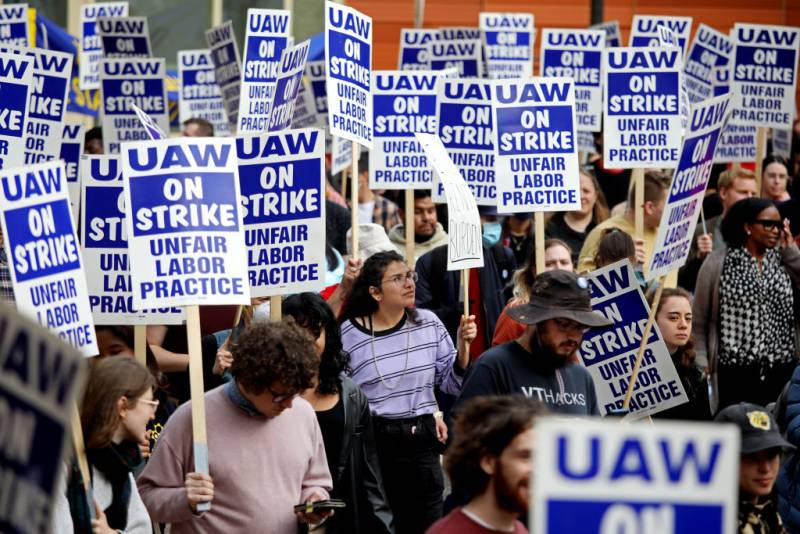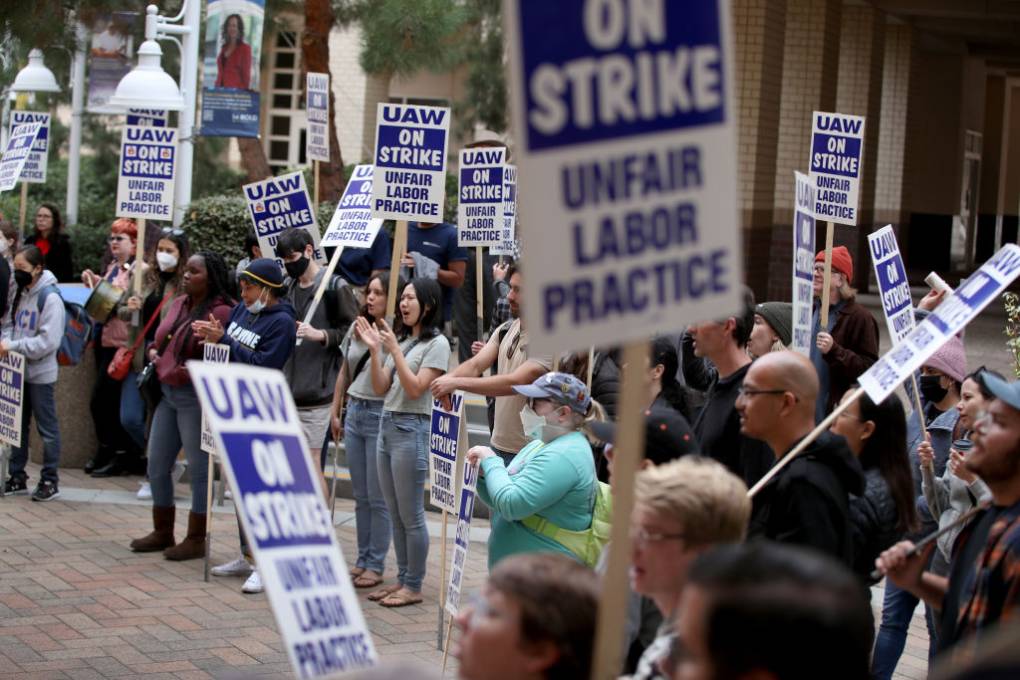Update, 5:10 p.m. Sunday: After the University of California reached a tentative labor agreement on Friday with around 36,000 graduate student teaching assistants and academic workers for increased pay and benefits, some members of the bargaining team expressed their dissatisfaction that not all of their demands were met.
“The question in front of us, rather, is whether or not we have the strike power to improve upon these demands or whether or not it’s time to settle this contract so we can have the protections of a contract again,” said Jeremy Rud, a striking teacher’s assistant and Ph.D. candidate within the Department of Linguistics at UC Davis, during a virtual informational town hall meeting on Sunday. “Also, each day on strike delays the implementation of benefits we’ve won in a new contract, like family leave.”
United Auto Workers Local 2865’s recording secretary Janna Haider from UC Santa Barbara voted no against the tentative agreement and said what matters is the ability to withhold labor for the grade submission deadline when the university will feel the financial impact.
“I think that if we’re lucky enough to vote no on this contract [and] continue on strike, we’re going to have to radically rethink what it means to be on strike and how withholding labor works and what solidarity actions we can engage in to support that withholding of labor,” said Haider in an interview. “What happened with Columbia [University] is that they were able to put a new strike authorization vote in the field to go on a different kind of strike, to go on an economic strike. And I’m hoping that we will have the opportunity to do that.”
Original story, updated 7 p.m. Saturday: The University of California reached an agreement Friday with some 36,000 graduate student teaching assistants and other academic workers for increased pay and benefits that could potentially end a five-week strike at the prestigious state system.
The strike disrupted classes at all 10 of the university system’s campuses and was the largest strike of academic workers in the nation. The agreement still needs to be ratified before the strike officially ends.
The bargaining units said some workers will see raises of up to 66% in their two-and-a-half-year contracts.


